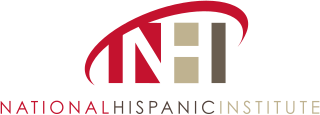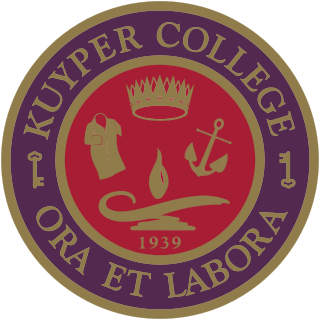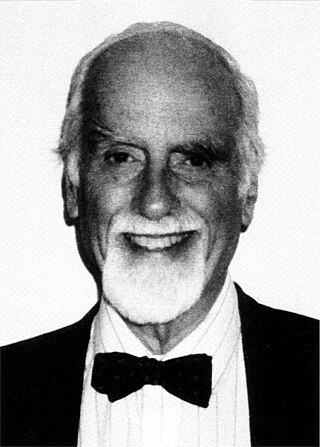Progressive education, or educational progressivism, is a pedagogical movement that began in the late 19th century and has persisted in various forms to the present. In Europe, progressive education took the form of the New Education Movement. The term progressive was engaged to distinguish this education from the traditional curricula of the 19th century, which was rooted in classical preparation for the early-industrial university and strongly differentiated by social class. By contrast, progressive education finds its roots in modern, post-industrial experience. Most progressive education programs have these qualities in common:
Frederick Irving Herzberg was an American psychologist who became one of the most influential names in business management. He is most famous for introducing job enrichment and the Motivator-Hygiene theory. His 1968 publication "One More Time, How Do You Motivate Employees?" had sold 1.2 million reprints by 1987 and was the most requested article from the Harvard Business Review.

Mentorship is the patronage, influence, guidance, or direction given by a mentor. A mentor is someone who teaches or gives help and advice to a less experienced and often younger person. In an organizational setting, a mentor influences the personal and professional growth of a mentee. Most traditional mentorships involve having senior employees mentor more junior employees, but mentors do not necessarily have to be more senior than the people they mentor. What matters is that mentors have experience that others can learn from.

Problem-based learning (PBL) is a student-centered pedagogy in which students learn about a subject through the experience of solving an open-ended problem found in trigger material. The PBL process does not focus on problem solving with a defined solution, but it allows for the development of other desirable skills and attributes. This includes knowledge acquisition, enhanced group collaboration and communication.

Experiential education is a philosophy of education that describes the process that occurs between a teacher and student that infuses direct experience with the learning environment and content. The term is not interchangeable with experiential learning; however experiential learning is a sub-field and operates under the methodologies of experiential education. The Association for Experiential Education regards experiential education as "a philosophy that informs many methodologies in which educators purposefully engage with learners in direct experience and focused reflection in order to increase knowledge, develop skills, clarify values, and develop people's capacity to contribute to their communities". Experiential education is the term for the philosophy and educational progressivism is the movement which it informed. The Journal of Experiential Education publishes peer-reviewed empirical and theoretical academic research within the field.

In education, a curriculum is broadly defined as the totality of student experiences that occur in the educational process. The term often refers specifically to a planned sequence of instruction, or to a view of the student's experiences in terms of the educator's or school's instructional goals. A curriculum may incorporate the planned interaction of pupils with instructional content, materials, resources, and processes for evaluating the attainment of educational objectives. Curricula are split into several categories: the explicit, the implicit, the excluded, and the extracurricular.

Flow in positive psychology, also known colloquially as being inthe zone, is the mental state in which a person performing some activity is fully immersed in a feeling of energized focus, full involvement, and enjoyment in the process of the activity. In essence, flow is characterized by the complete absorption in what one does, and a resulting transformation in one's sense of time. Flow is the melting together of action and consciousness; the state of finding a balance between a skill and how challenging that task is. It requires a high level of concentration. Flow is used as a coping skill for stress and anxiety when productively pursuing a form of leisure that matches one's skill set.
The two-factor theory states that there are certain factors in the workplace that cause job satisfaction while a separate set of factors cause dissatisfaction, all of which act independently of each other. It was developed by psychologist Frederick Herzberg.
Content theory is a subset of motivational theories that try to define what motivates people. Content theories of motivation often describe a system of needs that motivate peoples' actions. While process theories of motivation attempt to explain how and why our motivations affect our behaviors, content theories of motivation attempt to define what those motives or needs are. Content theory includes the work of David McClelland, Abraham Maslow and other psychologists.

Indiana Wesleyan University (IWU) is a private evangelical Christian university headquartered in Marion, Indiana, and affiliated with the Wesleyan Church. It is the largest private university in Indiana.
Self-determination theory (SDT) is a macro theory of human motivation and personality that concerns people's innate growth tendencies and innate psychological needs. It pertains to the motivation behind people's choices in the absence of external influences and distractions. SDT focuses on the degree to which human behavior is self-motivated and self-determined.

The National Hispanic Institute (NHI) is an international nonprofit organization dedicated to serving the future leadership needs of the global Hispanic community. Founded in 1979 in the State of Texas with the mission of serving the future leadership needs of the United States via the Hispanic/Latino community, NHI became the largest Latino youth organization in the United States. NHI is now an international organization with over 85,000 alumni worldwide and a well-known consortium of notable colleges and universities.
Kyōiku mama (教育ママ) is a Japanese pejorative term which translates literally as "education mother". The kyōiku mama is a stereotyped figure in modern Japanese society portrayed as a mother who relentlessly drives her child to study, to the detriment of the child's social and physical development, and emotional well-being.

Kuyper College is a ministry-focused Christian leadership college in Grand Rapids, Michigan that educates and trains Christian leaders for ministry and service. Through the integration of an academic curriculum and a Reformed worldview, they provide students who desire a biblical and academic college experience with the opportunity to live life through the filter of scripture.
Reading motivation is the motivational drive to read, an area of interest in the field of education. Studying and implementing the conditions under which students are motivated to read is important in the process of teaching and fostering learning. Reading and writing motivation are the processes to put more effort on reading and writing activities.
Peer mentoring is a form of mentorship that usually takes place between a person who has lived through a specific experience and a person who is new to that experience. An example would be an experienced student being a peer mentor to a new student, the peer mentee, in a particular subject, or in a new school. Peer mentors are also used for health and lifestyle changes. For example, clients, or patients, with support from peers, may have one-on-one sessions that meet regularly to help them recover or rehabilitate. Peer mentoring provides individuals who have had a specific life experience the chance to learn from those who have recovered, or rehabilitated, following such an experience. Peer mentors provide education, recreation and support opportunities to individuals. The peer mentor may challenge the mentee with new ideas, and encourage the mentee to move beyond the things that are most comfortable. Most peer mentors are picked for their sensibility, confidence, social skills and reliability.
Anthony Townsend Kronman is an American legal scholar who serves as a Sterling Professor at Yale Law School specializing in contracts, bankruptcy, jurisprudence, social theory, and professional responsibility. He was the 14th dean of Yale Law School from 1994 to 2004.
Managerial psychology is a sub-discipline of industrial and organizational psychology that focuses on the effectiveness of individuals and groups in the workplace, using behavioral science.

David Clarence McClelland was an American psychologist, noted for his work on motivation Need Theory. He published a number of works between the 1950s and the 1990s and developed new scoring systems for the Thematic Apperception Test (TAT) and its descendants. McClelland is credited with developing Achievement Motivation Theory, commonly referred to as "need for achievement" or n-achievement theory. A Review of General Psychology survey published in 2002, ranked McClelland as the 15th most cited psychologist of the 20th century.
Jerry A. Pattengale is a faculty member and administrator at Indiana Wesleyan University. He coined and founded the approach of “purpose-guided education” in 1997 while leading the implementation of student success programs at Indiana Wesleyan University. His approach includes calling for a humanities approach to student success, and the need for faculty involvement in the development of strategies.








